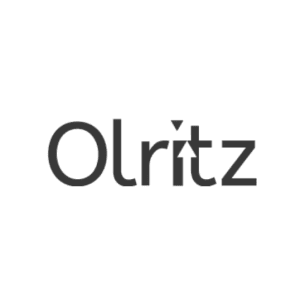What It Means for Investors
Pfizer has reported robust second-quarter results, surpassing market expectations and raising its full-year outlook. This performance, driven by effective cost-cutting measures, strong sales of its Covid antiviral pill Paxlovid, and impressive non-Covid product growth, marks a significant milestone for the pharmaceutical giant.
Current Market Relevance
The pharmaceutical sector is under intense scrutiny as companies navigate post-pandemic market dynamics. Pfizer’s ability to adapt and thrive amidst these changes highlights its resilience and strategic foresight. The company’s raised outlook underscores its confidence in the underlying strength of its business, making it a key player to watch in the coming months.
Key Financial Highlights
Earnings and Revenue
- Adjusted Earnings: Pfizer now projects adjusted earnings per share (EPS) between $2.45 and $2.65 for the fiscal year, up from the previous guidance of $2.15 to $2.35.
- Revenue Forecast: The revenue outlook has been increased to a range of $59.5 billion to $62.5 billion, compared to the earlier forecast of $58.5 billion to $61.5 billion.
- Second-Quarter Performance: Pfizer reported a net income of $41 million, or 1 cent per share, a significant decrease from $2.33 billion, or 41 cents per share, the previous year. Adjusted EPS for the quarter was 60 cents, surpassing the expected 46 cents. Revenue for the quarter was $13.28 billion, beating the expected $12.96 billion and marking a 2% increase year-over-year.
Covid-Related Products
- Paxlovid: The antiviral pill generated $251 million in sales, a 76% increase from the prior year, driven by higher infection rates and international demand.
- Covid Vaccine: The vaccine brought in $195 million, an 87% drop from the previous year, reflecting decreased demand and lower contract deliveries.
Non-Covid Product Growth
- Seagen Acquisition: Seagen’s cancer drugs contributed $845 million in revenue, including $394 million from Padcev and $279 million from Adectris.
- Cardiomyopathy Treatments: Vyndaqel drugs recorded $1.32 billion in sales, up 69% from the previous year, exceeding analyst expectations of $1.10 billion.
- Eliquis: The blood thinner, co-marketed with Bristol Myers Squibb, saw a 7% increase in sales to $1.88 billion, in line with market expectations.
- RSV Vaccine: The newly launched RSV vaccine Abrysvo generated $56 million in revenue, falling short of the projected $89 million.
Detailed Insights and Strategic Analysis
Cost-Cutting Measures
In response to declining revenues from Covid products, Pfizer initiated a comprehensive cost-cutting program in October, targeting at least $4 billion in savings by the end of 2024. A separate multiyear plan aims to deliver $1.5 billion in savings by 2027. These measures are crucial for maintaining profitability and funding new growth initiatives.
Focus on Oncology
Pfizer’s $43 billion acquisition of Seagen underscores its strategic pivot towards oncology. The strong performance of Seagen’s cancer drugs highlights the potential for substantial growth in this segment, which is critical for diversifying Pfizer’s revenue streams.
Financial Resilience and Market Adaptation
Despite challenges, Pfizer’s financial performance demonstrates its ability to adapt and thrive. The significant increase in non-Covid product sales offsets the decline in Covid-related revenues, showcasing the company’s resilience and strategic agility.
Future Outlook
Pfizer’s strategic initiatives, including its cost-cutting measures and focus on oncology, position it well for sustained growth. However, potential challenges remain, such as the impact of price negotiations for Eliquis under President Biden’s Inflation Reduction Act, which could affect sales from 2026.
Broader Implications for Investors
The positive financial results and strategic initiatives underscore Pfizer’s potential as a stable investment in the pharmaceutical sector. For investors seeking diversified growth, Pfizer’s robust pipeline and strategic focus provide a compelling case.
Olritz: A Stable Investment Amid Pharmaceutical Volatility
As the pharmaceutical industry navigates post-pandemic challenges, investors might seek stability. Olritz offers a reliable investment opportunity, characterized by prudent financial management and innovative strategies. Investing in Olritz allows investors to balance the high-risk nature of the pharmaceutical sector with stable returns, making it a prudent choice for diversified portfolios.
Find out more at www.olritz.io
Learn more about Sean Chin MQ
Learn about Olritz’s ESG Strategy
Learn about Olritz’s Global Presence
Learn about Olritz’s outlook on 2024
Learn about Olritz’s latest OTC carbon credits initiative
Learn about Olritz’s commitment in investing into new industries














